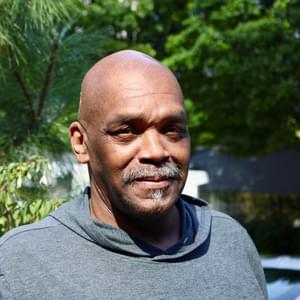The Register Guard (Eugene, Oregon) praised Governor John Kitzhaber’s recent announcement halting all executions, calling his conclusion that the “death penalty is morally wrong and unjustly administered” to be “right on both counts.” In their editorial, the paper noted that the governor’s actions are in line with other developments in the U.S. and internationally: “Kitzhaber’s announcement came as the tide is turning against the death penalty. Earlier this year, Illinois Gov. Patrick Quinn abolished it in a state that since 1977 had wrongly condemned at least 20 people to death. At least 16 states — and 133 countries — now reject the death penalty.” The editors encouraged Oregonians to engage in a “great debate” on the death penalty and seek a solution that “reflects Oregon’s values.” See the full editorial below.
EDITORIAL: Kitzhaber stops executions
The temporary reprieve starts a long-overdue debate
Published: (Wednesday, Nov 23, 2011 10:27AM)
Gov. John Kitzhaber says his decision on Tuesday to block the execution of Gary Haugen — or that of any Oregon inmate — while he is in office was based on his belief that the death penalty is morally wrong and unjustly administered.
Kitzhaber is right on both counts. And he is right to exercise his authority under Article V, Section 14, of the Oregon Constitution to grant a temporary reprieve for Haugen — even though the twice-convicted murderer had waived his legal appeals and the Oregon Supreme Court had cleared the way for his execution to proceed.
First and foremost, Kitzhaber acted out of profound personal conviction — something all Oregonians, regardless of where they stand on capital punishment, should respect.
The death penalty has been carried out just twice in the last 49 years in Oregon — both under Kitzhaber’s first term as governor. In a statement, Kitzhaber described his decisions to allow the 1996 execution of Douglas Franklin Wright and the 1997 execution of Harry Charles Moore as the “most agonizing and difficult” he has made as the state’s chief executive.
“I have revisited and questioned them over and over again,” he wrote. “I do not believe that those executions made us safer, and certainly they did not make us nobler as a society.
“And I simply cannot participate once again in something I believe to be morally wrong.”
Kitzhaber left no doubt that he fully grasped the hideous nature of Haugen’s crimes. Critics will note the irony of a governor choosing life for a man who chose death for two others — the inmate whom Haugen killed four years ago and his girlfriend’s mother, murdered in 1981.
Under Oregon’s dysfunctional death penalty system, the only two people who have been executed in recent years were those who, like Haugen, had volunteered to die. As the governor noted, “The death penalty as practiced in Oregon is neither fair nor just, and it is not swift or certain.” It is, as Kitzhaber said, “a perversion of justice.”
Kitzhaber’s announcement came as the tide is turning against the death penalty. Earlier this year, Illinois Gov. Patrick Quinn abolished it in a state that since 1977 had wrongly condemned at least 20 people to death. At least 16 states — and 133 countries — now reject the death penalty.
Oregon should join their ranks. Kitzhaber, who favors replacing the death penalty with life in prison without the possibility of parole, said he will ask the Legislature to consider reforms in its 2013 session.
The governor declined to commute Haugen’s sentence, saying that decision belongs to Oregonians who should engage in a statewide debate over this most critical of issues. That debate began with Kitzhaber’s announcement.
Despite the many mistakes and injustices that have been uncovered in the application of the death penalty nationwide, it may require a long and arduous campaign to convince Oregonians that the death penalty is indefensible and should be abolished.
So be it. Let the great debate begin.
It’s time, as Kitzhaber said, to “find a better solution” — one that reflects Oregon’s values.
(“Kitzhaber stops executions: The temporary reprieve starts a long-overdue debate,” Register Guard, Nov. 23, 2011, editorial). See Editorials and New Voices.
New Voices
Mar 21, 2024


